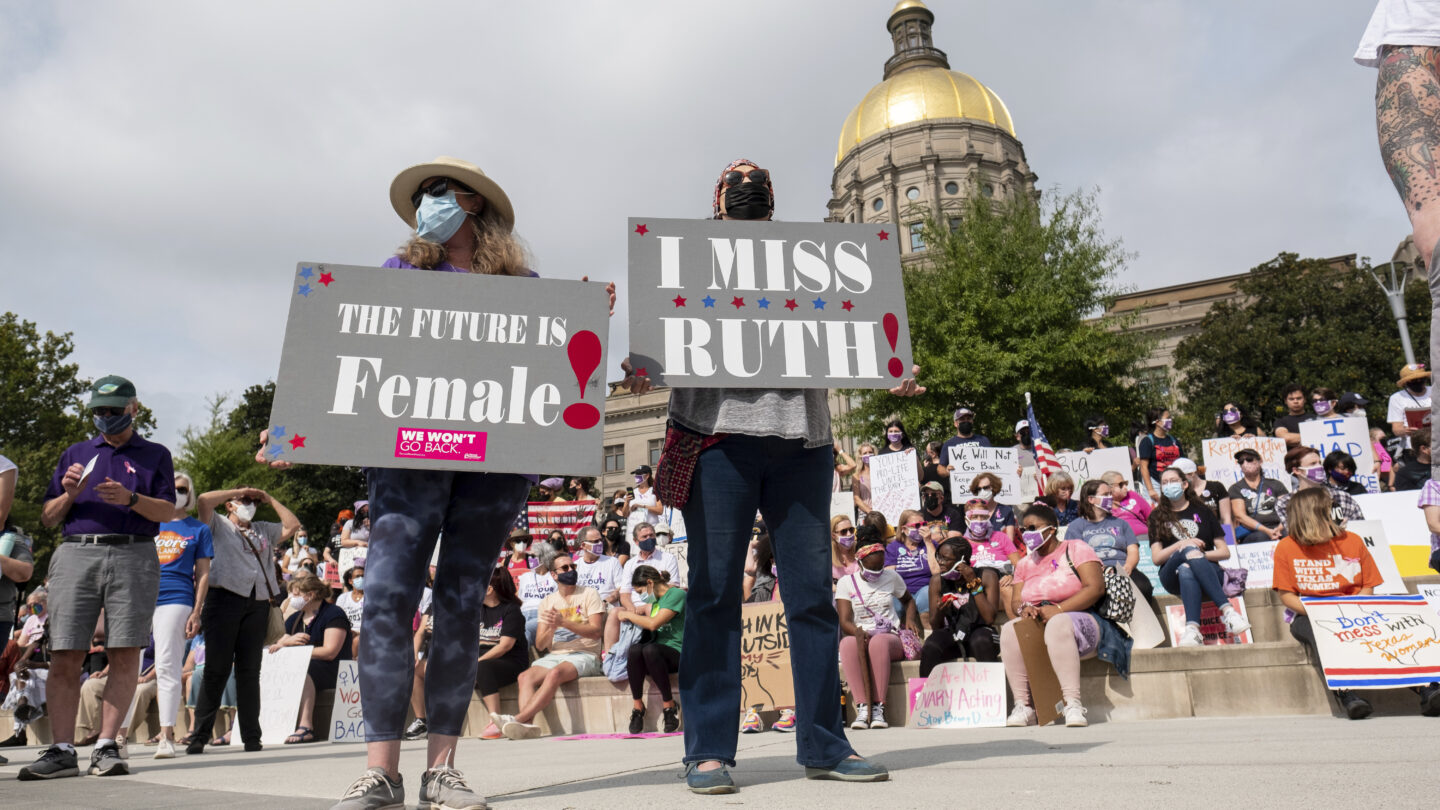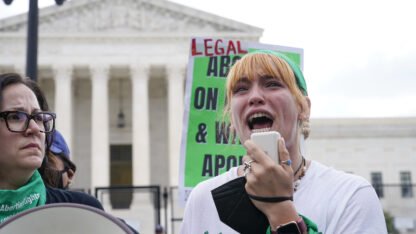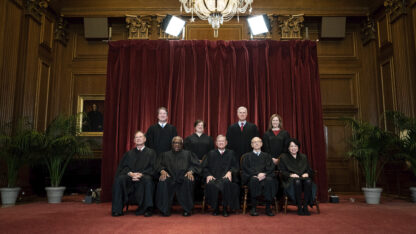Now that the U.S. Supreme Court has overturned the constitutional right to abortion, it’s up to states to decide whether or not to ban or restrict abortion.
Georgia already has a restrictive abortion law on the books, but it’s been on hold in the federal courts since Republican Gov. Brian Kemp signed it into law in 2019.
Now, a federal court could soon allow the law to take effect, banning most abortions after about six weeks and possibly imposing criminal penalties on those who seek or provide abortions after that time with few exceptions. Abortion remains legal in Georgia until the court acts.
The Supreme Court’s decision will have sweeping consequences for Georgians — and is already sending shockwaves through Georgia politics, with midterm elections just a few months away.
“Today’s landmark ruling is a historic victory for life,” Kemp wrote in a statement. “I hope our law will be fully implemented and ultimately protect countless unborn lives here in the Peach State.”
“Let me be clear: We will not back down. No judge, no politician, no ban should ever block your personal medical decisions or set the course for someone’s health and life,” Amy Kennedy, a vice president with Planned Parenthood Southeast Advocates, wrote in a statement.
Following a decision from the federal appeals court, attention will then turn to state courts, state lawmakers, Georgia’s attorney general and every local district attorney, as Georgia is suddenly given new leeway to make the rules about abortion.
County prosecutors will determine whether to pursue criminal charges under Georgia’s restrictive abortion law, potentially leading to uneven enforcement across the state.
After the Supreme Court ruling, DeKalb County District Attorney Sherry Boston pledged not to prosecute people under the law.
“It is my contention that law enforcement and prosecutors should not be thrust into this health space, regardless of the legislation on the books,” Boston wrote in a statement. “I believe it is a woman’s right to make decisions regarding her own body and medical care, including, but not limited to, obtaining an abortion.”
This week, the Atlanta City Council passed a non-binding resolution discouraging the Atlanta Police Department from prioritizing abortion-related crimes.
“I am sickened by this decision that wrongly and immorally tells women that their bodies are not their own,” Atlanta Mayor Andre Dickens wrote in a statement.
Georgia’s law would still likely face additional legal challenges in state court.
“Where do we go next? Where we go next is the Georgia Constitution,” state Sen. Jen Jordan, the Democratic nominee for attorney general, told WABE in May.
While state attorneys general don’t typically have the authority to decide whether to enforce a criminal statute, they do have the discretion to defend or challenge a state law in court.
Jordan, and many legal experts, say Georgia’s Constitution has strong privacy protections, which were the foundation of Roe v. Wade.
“The court put it as the right to withdraw from public gaze,” Georgia State University Law Professor Anthony Kreis says. “Just leave me alone. And if I’m not bothering anybody, then the state should really have to produce a compelling interest in disturbing my peace.”
Meanwhile, the abortion ruling is certain to shape the upcoming midterms.
Democrats think the decision will galvanize their voters, especially in races for governor, attorney general and the state legislature.
“Georgia is the next battleground for reproductive freedom, and the basic right of having control over one’s body will now wholly depend on the actions of leaders that we elect at the state level,” Jordan wrote in a statement. “So make no mistake about it, our fundamental rights are on the ballot this November.”
In the race for the U.S. Senate, Republican nominee Herschel Walker, who’s challenging Democratic Sen. Raphael Warnock this fall, lauded the Supreme Court’s decision.
“This Supreme Court decision sends the issue of abortion back to the states, which is where it belongs,” Walker said. “I won’t apologize for erring on the side of life.”
“I am appalled. Enraged. Undaunted & ready to fight back,” Democratic candidate for governor Stacey Abrams wrote on Twitter.









